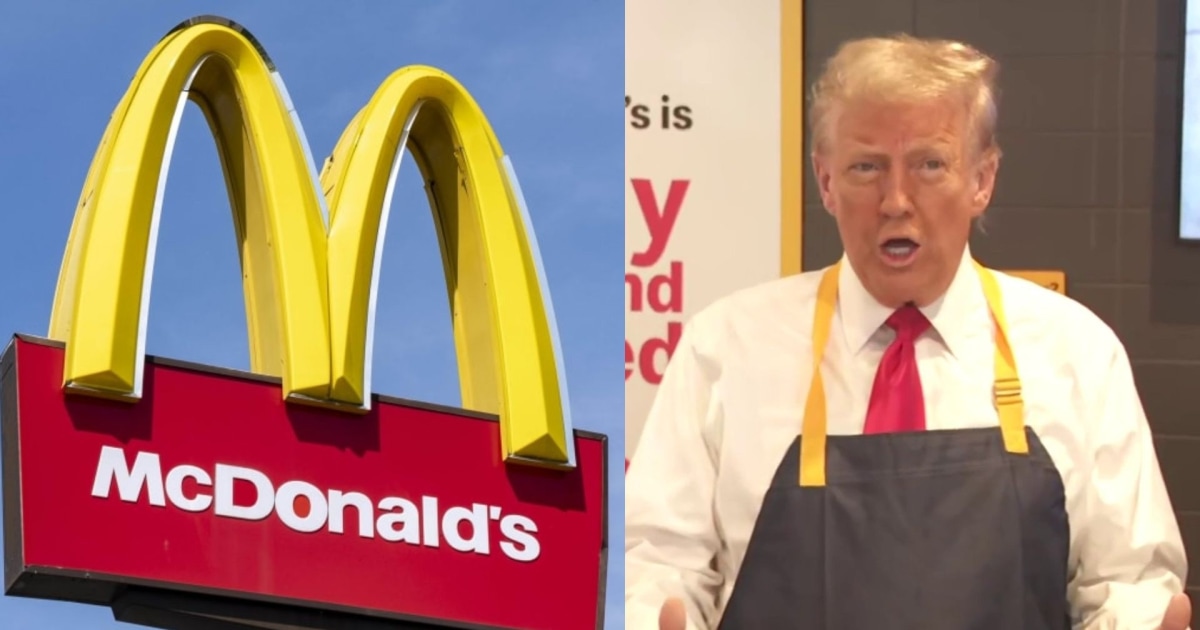
Trump Takes McDonald's Orders, Questioning Harris' Fast-Food Credibility
In a bold move that’s making headlines, former President Donald Trump recently stepped into a McDonald's in Pennsylvania, donning an employee apron and taking orders from customers. This was not just a spontaneous visit for a quick bite; it was a calculated attempt to cast doubt on Vice President Kamala Harris’s claims of having worked at the fast-food chain during her college years.
Arriving at the Philadelphia International Airport, Trump’s team took him to a franchise in Feasterville, where he not only took drive-thru orders but also assisted in cooking their famous fries. His antics appear to be part of an ongoing campaign strategy aimed at undermining Harris's credibility, particularly her narrative about her working-class roots. Harris has previously mentioned her time working at McDonald's in the summer of 1983, during her undergraduate years at Howard University, where she operated the cash register and prepared fries at a location in Alameda, California.
Also Read:- Jets and Steelers Clash in High-Stakes Sunday Night Showdown
- Nepal Triumphs Over USA in Thrilling Super Over
The former president has publicly questioned the validity of her claims, asserting without evidence that Harris "lied about working at McDonald's." This sentiment was echoed by his senior advisor, Jason Miller, who suggested that Trump’s visit was a way to emphasize that he, unlike Harris, had genuine experience at McDonald's. The Harris campaign has strongly refuted these accusations, positioning her McDonald's job as a testament to her middle-class upbringing, which they argue sets her apart from Trump’s privileged background. Ian Sams, a spokesman for Harris, remarked, “When Trump feels desperate, all he knows how to do is lie,” underscoring the disparity between their life experiences.
Harris and Trump are locked in a historically tight race, with economic issues at the forefront. While Trump has previously touted his economic management during his presidency, Harris has been challenging his narrative, particularly in key swing states. She aims to resonate with voters by emphasizing her working-class experience, while Trump attempts to sway public perception through his trademark bravado and media-savvy stunts.
McDonald's, which has become an iconic symbol of American fast food, plays a significant role in this political narrative. With over 40,000 locations worldwide and a substantial workforce, including 25,000 employees in Pennsylvania alone, it represents both opportunity and the struggle of the average American worker. The owner of the Feasterville location, Derek Giacomantonio, expressed pride in showcasing the chain, stating that the McDonald's experience is more than just serving burgers and fries—it’s a path to opportunity for many.
Trump’s affinity for McDonald's has been well-documented. He famously celebrated securing enough GOP delegates in 2016 by enjoying a Big Mac on his private jet, and he once hosted a college football team at the White House with an assortment of fast-food meals. These moments have contributed to his public persona as a man of the people, albeit one who often takes the stage to draw sharp contrasts with his opponents.
As the election approaches, both candidates are ramping up their rhetoric and strategies. The spotlight on Trump’s fast-food appearance underscores not only the unique approaches each candidate takes but also the high stakes involved in their quest for voter approval. The intersection of politics and fast food continues to serve as a potent backdrop for this election cycle, revealing much about the candidates and the electorate's sentiments.
Read More:

0 Comments